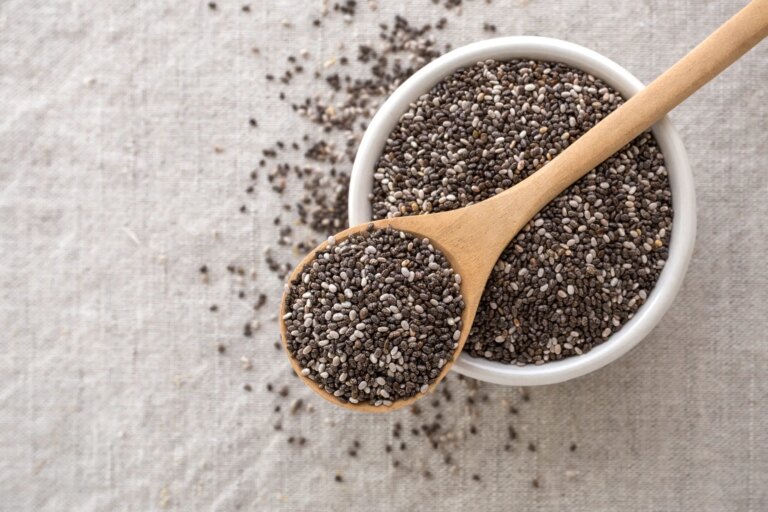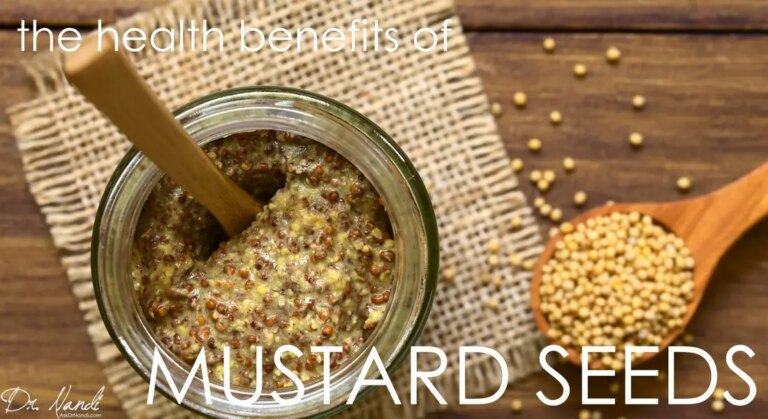As we step into 2024, the pursuit of optimal health continues to gain momentum, with a particular focus on gut health. The old adage “you are what you eat” takes on new meaning as emerging science underscores the significance of gut health for overall wellness, skin clarity, and even mood regulation. This year, we’re delving into the latest gut health trends, sifting through the science and myths to discern what truly works.
Today, let us explore a variety of dietary choices known for their gut health benefits, from traditional culinary delights to modern-day superfoods. My aim is to provide a comprehensive understanding of how various foods can contribute to a healthier gut microbiome and, in turn, a healthier you.
For a more visual and in-depth discussion, you can catch my insights on these topics in my recent show appearance below. Let’s embark on this educational journey together, discovering not just healthy foods but the science that makes them beneficial for our gut health.
Raita: A Digestive Aid or Just a Tasty Side?
Raita, a blend of yogurt with various ingredients like cucumber, tomatoes, and spices, is often thought of as just a flavorful side dish. However, its benefits extend beyond taste.
- Improving Digestive Health: Contrary to the myth that dairy can be harmful to digestion, yogurt, the main ingredient in Raita, is beneficial. Yogurt is filled with probiotics, specifically Lactobacillus, which play a crucial role in gut health. Studies have shown that regular consumption of yogurt leads to changes in the gut microbiome, increasing the diversity and abundance of beneficial bacteria. This enhancement of gut flora is linked to improved digestion and overall gut health. [1,2]
- Weight Management and Metabolic Health: Some might think that Raita, being a creamy dish, might not align with weight management goals. However, scientific evidence suggests that yogurt consumption can be beneficial for obesity and metabolic-related disorders. The probiotics in yogurt contribute to a healthy gut microbiome, which is crucial for maintaining a healthy weight and metabolic balance. [3]
- Nutritional Powerhouse: The common misconception that traditional dishes like Raita are not nutritious is debunked by the rich nutritional profile of its ingredients. Yogurt is a good source of protein, calcium, and vitamins. Cucumbers and tomatoes add hydration, vitamins, and minerals. The spices used, such as cumin, provide additional health benefits like iron, which is essential for oxygen transport in the body. [4]
- Beneficial for Heart and Diabetic Health: Raita is also advantageous for heart health and diabetic patients. The probiotics in yogurt help in managing blood sugar levels and cholesterol, thereby supporting cardiovascular health and diabetic management. [5]
Raita’s versatility makes it an excellent addition to meals. It can be served as a dip, side dish, or a light snack, complementing a variety of cuisines while providing health benefits.

Natto: A Fermented Powerhouse or Overhyped Trend?
Natto, a traditional Japanese fermented soybean dish, is often debated for its health benefits. Let’s explore the facts and myths surrounding Natto.
- Gut Health and Probiotics: Natto is enriched with probiotics, particularly Bacillus subtilis. These probiotics are known to improve gut health by enhancing the gut microbiome, promoting better digestion, and boosting the immune system.
- Cardiovascular Health: Natto contains nattokinase, which is known for its role in preventing blood clots, thus potentially improving cardiovascular health. This enzyme contributes to overall heart well-being.
- Bone Health: Rich in Vitamin K2, Natto supports bone health. Vitamin K2 plays a crucial role in bone mineralization, helping to prevent bone-related diseases like osteoporosis, especially in aging populations.
- Nutritional Profile: It is a great source of protein, vitamins, and minerals, making it a nutritious addition to diets, especially for vegetarians and vegans. Natto is also rich in polyunsaturated fats, which can help in lowering bad cholesterol.
- Weight Management: Despite being rich in nutrients, Natto is low in calories, making it a beneficial food for weight management. Its high fiber content can also promote a feeling of fullness. [6]
Embracing Natto can be as simple as adding it to your breakfast with rice and soy sauce or using it as a unique sushi filling. It can also elevate your salads, serve as a protein-packed sandwich filling, or bring a savory twist to stir-fries and noodle dishes. By exploring these creative culinary options, you can enjoy the health benefits of Natto while savoring its distinctive flavor and texture in your daily meals.
Alternative Fermented Wonders for Gut Health
Kefir and Sauerkraut are two other fermented foods celebrated for their potential to enhance gut health, which are great alternatives to Natto.
Kefir, a fermented dairy product, often raises questions about its compatibility with lactose intolerance. However, the truth is that kefir contains significantly less lactose than milk due to the fermentation process. Its probiotics, including Lactobacillus and Bifidobacterium strains, support gut health and may even alleviate lactose intolerance symptoms. [7]
Sauerkraut, commonly associated with hot dogs, holds a surprising array of health benefits. As a fermented cabbage dish, sauerkraut is rich in probiotics like Lactobacillus. It aids digestion, supports immune function, and contributes to a balanced gut microbiome. Plus, it’s a low-calorie option that can enhance the flavor of various dishes. [8]

Mushroom Coffee: A Gut-Friendly Brew?
Mushroom coffee, a unique beverage that combines coffee with various mushroom extracts, has gained popularity for its potential health benefits. Here’s a closer look at its impact on gut health:
- Probiotic Potential: Mushroom coffee is believed to have probiotic properties due to the presence of certain mushroom species. These mushrooms may introduce beneficial bacteria to the gut, contributing to a healthier gut microbiome.
- Limited Scientific Evidence: While there is some excitement surrounding mushroom coffee’s gut benefits, it’s essential to note that comprehensive scientific research on its effects is still limited. More studies are needed to establish its efficacy in promoting gut health.
- Individual Reactions: It’s important to acknowledge that individuals may have varying responses to mushroom coffee. Some may experience digestive benefits, while others might encounter mild bloating or discomfort.
If you’re interested in incorporating mushroom coffee into your routine, start with small amounts and monitor how your body responds. It may be a flavorful addition to your morning brew with potential gut health perks.
Jerusalem Artichokes: Nature’s Prebiotic Powerhouse
Jerusalem artichokes, often overlooked in the world of vegetables, hold a secret within their knobby appearance. Here’s a closer look at the reality behind Jerusalem artichokes and their potential as a prebiotic source:
- Rich in Inulin: Jerusalem artichokes are naturally rich in inulin, a type of prebiotic fiber. Inulin serves as food for beneficial gut bacteria, nourishing them and contributing to a healthier gut microbiome. [9, 10]
- Scientific Support: Numerous studies have highlighted the prebiotic properties of inulin-rich foods like Jerusalem artichokes. These studies show that inulin can lead to an increase in beneficial gut bacteria, promoting gut health. [10, 11]
- Gut Microbiome Enhancement: Regular consumption of Jerusalem artichokes may enhance the diversity and abundance of beneficial bacteria in the gut. This enhancement can lead to improved digestion and overall gut well-being.
Jerusalem artichokes can be incorporated into various dishes, adding a subtle nutty flavor and a hint of sweetness. Roast them as a side dish, blend them into soups, or include them in salads to reap their prebiotic benefits.
Tepache: The New Kombucha?
Tepache, the fermented pineapple drink, has been hailed as “the new kombucha.” Here’s a closer look at its potential:
- Pre and Probiotic Content: Tepache boasts prebiotics from pineapple and probiotics from fermentation. This combination can support digestion and promote a healthy gut microbiome.
- Bromelain Benefits: Tepache contains bromelain, an enzyme found in pineapple, which aids digestion and offers potential anti-inflammatory benefits.
- Unique Flavor: Tepache offers a slightly sweet, effervescent tropical-fruit flavor, making it a refreshing and enjoyable beverage choice.
Tepache vs. Kombucha: A Quick Comparison
Tepache, the fermented pineapple drink, has garnered attention as “the new kombucha.” While both beverages offer potential gut health benefits, they bring distinct flavors to the table. Tepache delights the palate with its slightly sweet, effervescent tropical-fruit profile, making it a refreshing choice for those seeking a unique taste. On the other hand, kombucha offers a tangy, fermented flavor that some find more acquired.
In terms of probiotics, both Tepache and kombucha contain these beneficial microorganisms, although the specific strains may vary. Tepache’s shorter fermentation period results in a beverage that may have a higher sugar content due to the natural sugars in pineapple, while kombucha typically undergoes a longer fermentation process, which can reduce sugar levels.
Ultimately, whether you opt for Tepache or kombucha, both can be enjoyable ways to support your gut health journey, each offering its distinct flavor profile and potential benefits.
My Personal RX: Balancing Your Gut Health Journey
Maintaining a healthy gut is essential for overall well-being, and as a doctor, I’m pleased to offer you some valuable tips to support your gut health journey:
- Variety Is Key: Diversify your diet with a wide range of fruits, vegetables, and whole grains to promote a diverse microbiome.
- Fiber’s Fundamental Role: Don’t underestimate the power of fiber, as it plays a crucial role in gut health. Consider adding Fiber Complete supplements to your daily routine to support digestive regularity and nourish your microbiome.
- Supercharge with Superfoods: Explore the Superfoods Cookbook for delicious recipes that integrate nutrient-packed superfoods, enhancing your gut health and overall vitality.
- Hydrate Adequately: Proper hydration is essential for a healthy gut. Sip on water throughout the day to help your digestive system function optimally.
- Mindful Eating: Practice mindful eating by savoring each bite and chewing thoroughly, aiding in the digestion process.
- Limit Processed Foods: Minimize processed and sugary foods that can disrupt gut balance and promote inflammation.
- Manage Stress: High stress levels can negatively impact gut health. Incorporate stress-reduction techniques like meditation or yoga into your daily routine.
- Listen to Your Body: Pay attention to your body’s signals. If you experience digestive discomfort or irregularities, consult a healthcare professional for personalized guidance.
By following these tips and incorporating supplements and available resources into your lifestyle, you’ll be well on your way to achieving optimal gut health. Remember, your gut health journey is a lifelong commitment, and small changes can make a significant difference. Cheers to a healthier you!
Sources:
- https://pubmed.ncbi.nlm.nih.gov/25875150/
- https://bmcmicrobiol.biomedcentral.com/articles/10.1186/s12866-021-02364-2
- https://pubmed.ncbi.nlm.nih.gov/25875150/
- https://healthonabudget.com/recipe-and-health-benefits-of-south-asian-dish-raita/
- https://www.sureshotayurveda.com/blog/cucumber-raita-best-in-summer/
- https://www.hindawi.com/journals/bri/2022/5863887/
- https://www.ncbi.nlm.nih.gov/pmc/articles/PMC4854945/
- https://www.ncbi.nlm.nih.gov/pmc/articles/PMC4268643/
- https://www.sciencedirect.com/science/article/abs/pii/S2212619821000218
- https://pubmed.ncbi.nlm.nih.gov/31707507/
- https://www.ncbi.nlm.nih.gov/pmc/articles/PMC6537941/





















